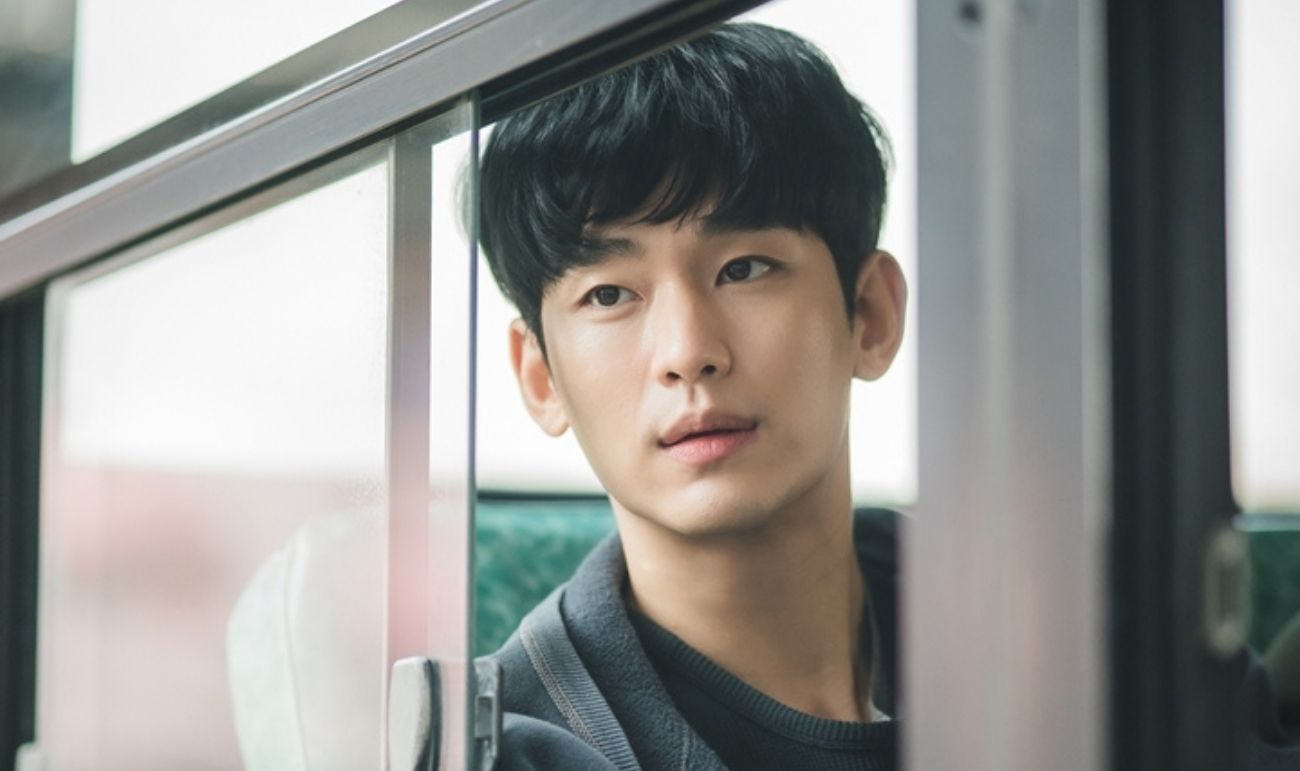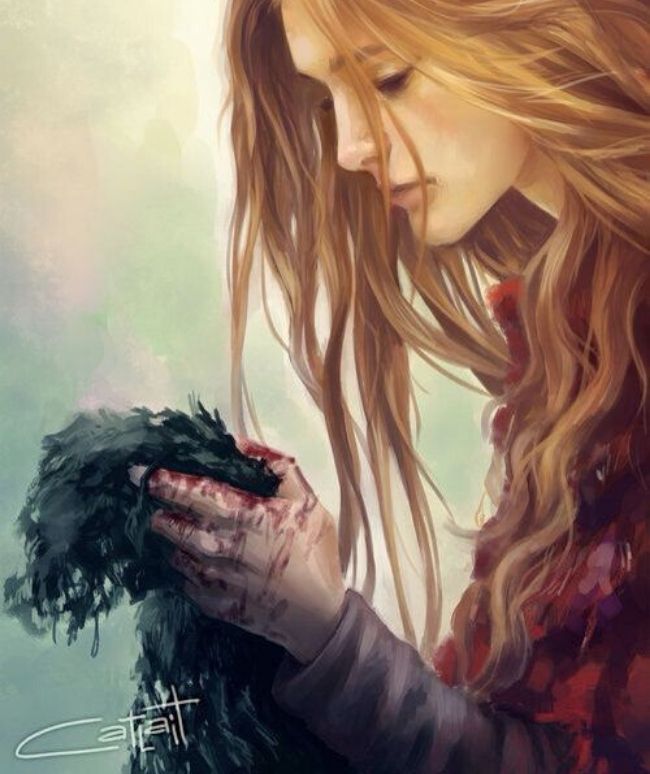
Nightmares and Fairy Tales
In 2021, a new Korean drama premiered on Netflix under the English title It’s Okay Not to Be Okay. I had previously written an article about it on my blog, yet I return to this show—and to my readers—with new reflections.
The main character is an author of children’s fairy tales. Her persona is exceptionally grotesque and cruel, which makes her fascinating in her unconventional way. While volunteering at a psychiatric hospital, she explains to the patients what fairy tales are truly about—with brutal honesty, devoid of embellishment or comforting lies.
This scene shook me deeply, and the patients portrayed in it reacted just as emotionally. Some began to cry, others tried to ignore or downplay her words, and the caregivers stood in disbelief. It was, in short, an incredibly dramatic moment. I watched and listened, unable to stop myself from feeling a pang of envy for that raw, unfiltered surge of emotion that I hadn’t experienced in years.
"Fairy tales are not psychedelic, bringing happiness and dreams. They are stimulants, encouraging us to confront our lives. I hope you'll read many fairy tales and awaken from your dreams. Instead of gazing at the stars in the beautiful sky, focus on your feet stuck in the mud. When you come to understand and accept your fate, everyone will find happiness."
From an early age, my generation was taught to dream and gaze at the stars—to wish and aspire to make them come true. I, a child raised on Disney fairy tales, know this all too well. Yet no one ever told us that beyond dreaming, there must also be action. No one said that wishful thinking alone—without our own effort—would leave our desires forever unfulfilled.
I remember the day my therapist said to me, “Aleksandra, princess, wake up from the fairy tale you’re living in.” I was furious, but that kind of anger can serve as a powerful catalyst for change.
I watched that scene and absorbed the lesson the main character was teaching. I envied her courage, her principles, and her ability to speak the truth without excessive compassion—to say it to patients who needed dreams and hopes the most. Some of them would never leave the facility or recover fully, and yet she destroyed their dreams and trampled on the stars they still had the strength to gaze upon. After reflecting on it for some time, I realized it was the best thing she could have done. Why? Because it was real. Every truth—pleasant or painful—is better than the kindest lie. Before watching that episode, I would never have even considered such an approach. Now, I am grateful for that insight and determined to cultivate courage.
Another remarkable thing is that Moon-yeong Go treated those people with genuine respect and without any trace of discrimination. She treated them like everyone else. For a person who has experienced rejection, isolation, and feels different from most of society, this is the purest form of equality.
In my writing and in conversations with others, I have always repeated: speak the truth, treat people equally. Yet after watching that episode, I felt like a hypocrite. I realized that when speaking with certain people, I often shared only part of the truth, only part of my opinion—believing I was doing so to protect them from pain. In reality, I was causing them even greater harm.
The heroine gave her patients a profound gift: the understanding that life is demanding, and no one but ourselves is responsible for motivating us to live rightly—to live better, to grow, and to achieve our dreams. She helped them realize that true happiness comes from self-acceptance, from understanding and coming to terms with one’s situation—not from getting exactly what we want, nor from living in a beautiful golden castle beyond seven mountains and seven forests.
"The Boy Who Fed on Nightmares"
The boy awoke from yet another dreadful nightmare. Painful memories from his past, memories he desperately wished to erase, tormented his dreams each night and haunted his waking hours. He had grown fearful of falling asleep. One day, driven by his desperation, he sought out a witch with a humble plea.
“Please erase my bad memories so I don’t have nightmares anymore. I will do whatever you tell me.”
Years passed, and the boy had become a man. His nightmares were a thing of the past. Yet, inexplicably, he remained unhappy. On the night of the blood moon, the witch returned to claim what he had promised her in exchange for granting his wish. He shouted furiously at her:
“My terrible memories are gone. But why… why can’t I be happy?”
Then the witch took his soul, as agreed, and told him:
“Unpleasant, painful memories. Memories of deep regret. Harming others and being abused. Being abandoned. Only people with such memories rooted in their hearts will be stronger, more passionate and adapt more easily. Only they will know happiness. Remember that. Remember this and overcome it. If you do not overcome it, you will always be a child whose soul does not mature”
We often find ourselves wondering why we suffer so much. Why me? Why can’t I just be happy? In reality, we should embrace both sadness and joy, regret and gratitude, happy and less happy moments, for they collectively mold us. It is through them that we become who we are. Without these experiences, we would be nothing more than empty, superficial shells.
I don’t have an explanation for everything. There are things and situations that I can’t turn into something positive. However, I’d like to share a few examples from my life for which, in hindsight, I am grateful. These experiences crossed my path, and I managed to survive them.
- My father let me down more times in my life than I can count. But thanks to those disappointments, I stopped seeking security in a man. I learned that I must ensure my own safety and stability.
- My beloved grandfather passed away before I could bid him farewell. It taught me that nothing and no one should be taken for granted; we never know when circumstances will change.
- I called off my engagement with my current husband a few months before the wedding. It allowed both of us to realize how deeply we love each other.
- During my school years, I endured isolation from the group, gossip, and disapproval. These experiences made me resolve not to treat others that way, as I know the pain it inflicts. I also learned to be comfortable in my own company. When I embraced it, I naturally gained the approval of others.
- I’ve earned many awards and distinctions, experiencing the taste of joy and self-satisfaction, as well as the bitterness of human jealousy, feelings of inadequacy, and invisibility despite being the best. These experiences liberated me from the need for others’ approval. No matter what I do, I’ll never satisfy everyone, but I’ve learned how to please myself.
What about your challenges, problems, recent moments of sadness, fear, or anger? Or perhaps something has recently brought you joy and happiness? Reflect on these experiences and be thankful for those that have shaped you.

Organize your life.
The first publication in the Untold product series, created to share methodology for organizing everyday life, cultivating systematic discipline, and developing proper habits. Drawing from the author's experience, knowledge, beliefs, and commonly available coaching tools, she aims to inspire you to take action and present you with a straightforward approach to achieving fulfillment and building self-esteem. Written in a simple way, it contains examples from everyday life, practical tips, exercises, and beautiful graphics. Available in e-book and audiobook.




Leave a Reply